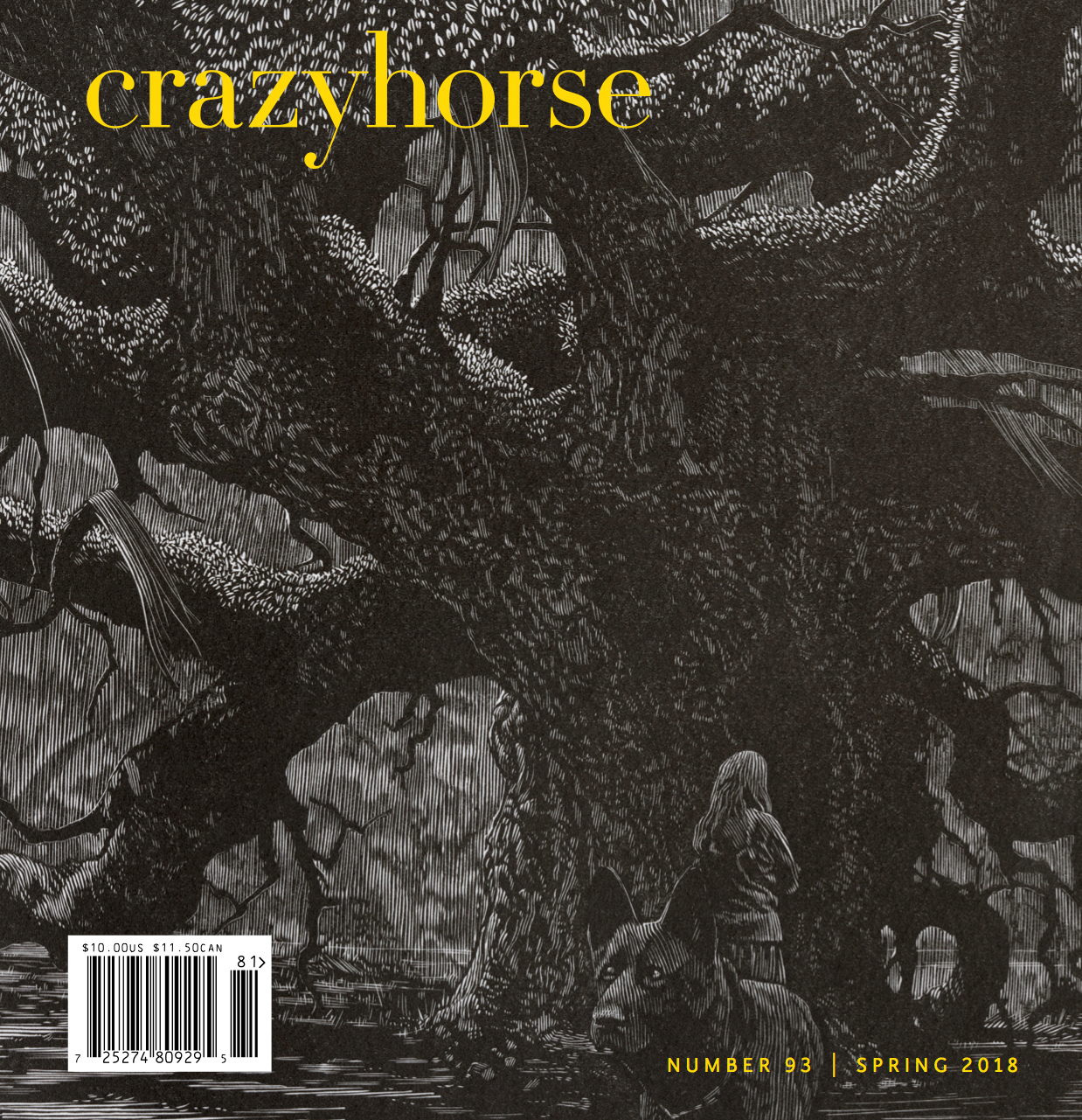
Jess Stoner’s essay, “Blues on Wheels,” about illegal labor practices at the US Post Office has inspired many postal workers to write her with their stories.
Jess Stoner is the author of the novel I Have Blinded Myself Writing This. Her work has been published in The Morning News, The Rumpus, Burnt Orange Report, and Caketrain, among others. She lives in Colorado and previously lived in Austin, where she worked for the United States Postal Service. Stoner wrote about the illegal and abusive labor practices that she experienced as a postal carrier in the essay “Blues on Wheels.”
To read “Blues on Wheels” and an exercise on writing for a hostile audience, click here.
Michael Noll
The essay contains so many stories of abuse and working conditions that are not only unsafe but illegal. How did you know where to begin telling them? When there is so much to tell, how do you figure out what to put in the essay, what to leave out, and how to organize the stories and details that you choose to include?
Jess Stoner
The most important thing I did, for myself, was wait a few months after I quit to even think about putting anything coherent together. I needed some emotional distance, because I knew it had to be bigger than just “The Post Office is the worst! Feel bad for me!”
Once we moved from Texas to Colorado, I had even more breathing room, and I started researching the history of the USPS. It wasn’t until after I had read hundreds of posts on postal worker forums and a few books, including Mailman, USA, written by a former president of the National Association of Letter Carriers, that I started to truly understand my experience as a part of a larger narrative.
One thing I knew for certain was that no one outside the USPS understands what the job is like—that’s such a lonely space to inhabit seven days a week. In addition, a fantastic editor I worked with at The Morning News, Rosecrans Baldwin, encouraged me to include not just the micro details (like what a typical morning looks like) but the macro (the historical and political) as well.
I was finally ready to finish the essay after telling a friend about the 40,000 words I had written. His response was: “That’s not an essay, that’s a book.” And that simple answer was so freeing. So maybe I wouldn’t talk about how letter carriers see and feel a city changing in unique ways (a house is torn down and three duplexes are built in its space—multiplying by six the amount of mail and packages you have to deliver); but it could still be a chapter in the book.
Michael Noll

The Dallas Morning News reported that “one in three construction workers in Dallas doesn’t get a break during the work day, no matter the time of day or temperature.”
You mention that Texas, where you worked, is a right-to-work state, which means the power of unions is severely limited. Texas is not alone; it’s one of 24 states with right-to-work laws, which is not surprising. Generally speaking, Americans are not particularly sympathetic to issues of worker safety or abuse. Perhaps it’s due to that old Protestant work ethic: work hard, don’t complain. Or perhaps it’s a result of the poor economy; when so many people are out of work or underemployed, they may have little interest in hearing complains from people with jobs. It seemed that you had these attitudes in mind as you wrote. For instance, you mention your work ethic, which was instilled by your lower middle class background. You remind readers that you could have quit if you wanted to; the job wasn’t a matter of avoiding destitution. I’m curious when these passages entered the essay. Where they always present? Did you have the readers’ skepticism in mind from the beginning? Or did you add them later after getting some initial feedback?
Jess Stoner
It wasn’t just the reader’s skepticism I was worried about; I was worried the entire time I worked at the Post Office that my colleagues would think I wasn’t cut out for the job. It meant everything to me to work hard and earn their respect.
And I was even more worried, from the very first day of training, that if my colleagues knew my background, they would think I accepted the position as an experiment, as fodder for something I’d write about later. In reality, I was proud to deliver the mail, and for the first two months or so, I naively hoped that it would be the last job I ever had.
You know, we hear a lot about the dignity of work. Politicians from the left and right, including President Obama, talk about how a job gives you dignity. I call bullshit. The people I worked with at the Post Office were good parents and grandparents; they were veterans; some of them talked about their strong faith—they all have an innate dignity that has nothing to do with how they earn a paycheck. From them, from my own experiences, and from the experiences of my friends who work at chain restaurants or are sales clerks at big box retailers, I have learned an incredibly important lesson: Work is just what millions of Americans do, despite the indignity.

The Texas Tribune’s series “Hurting for Work” reveals the injuries and deaths to Texas workers in the midst of the economic growth nicknamed “The Texas Miracle.”
I mean, for Christ’s sake, the Austin City Council had to pass an ordinance requiring employers to give construction workers rest breaks. According to The Dallas Morning News, one out of every three construction workers in Dallas isn’t allowed to take a water break—even when it’s 110 degrees outside. The Texas Tribune did an excellent, and, I think, award-deserving series called “Hurting for Work,” that details the terrible conditions workers face throughout the state. That more people aren’t horrified and publicly demanding change makes me wonder what the hell is wrong with our country.
Michael Noll
At one point, you describe getting bit by a dog (unleashed, unfenced), and your supervisor’s reaction was, “You’re probably going to get fired.” I can only imagine how incensed and upset you must have been at this. How were you able to control those emotions to write about the incident? Was it a matter of letting some time pass? Or did you use some other strategy to direct your anger?
Jess Stoner
In the moment I was blown away—my vision and mind went white—I felt like I had Saramago’s blindness. I had known, mostly only theoretically, of workman’s comp laws, of OSHA rules—they don’t exactly come up in faculty meetings and I hadn’t worked outside of a university, the state government, or a non-profit in years. I assumed that these laws existed and they were respected. Beyond my initial bewilderment and subsequent anger, I felt, more than anything, beaten down and depressed.
For weeks and months after I quit, I felt a strangling guilt over the fact that I had given up, that I could give up, that I abandoned the carriers and CCAs I worked with who had been so kind and supportive. I had to shake that off though. I had the privilege of walking away. Now what was I going to do with it?
Michael Noll
This essay falls into the long tradition of muckraker journalism: from Upton Sinclair’s expose of the meat packing industry to Barbara Ehrenreich’s book, Nickel and Dimed, about the conditions faced by the working poor. As such, it’s making highly critical claims about not only the USPS as a whole but also individual employees who behaved badly. Did you have concerns about legal repercussions of publishing the essay—libel, for instance? I know that you changed the names of the people involved, but I’m curious what other steps you may have taken to protect yourself from lawsuits or other legal retribution.
Jess Stoner
I’m beyond flattered that you consider my essay in concert with Ehrenreich—whose book I, coincidentally, re-read when I was writing the essay—the margins are full of my notes (like that part about why many low-paid workers get real pleasure from their short cigarette breaks: “Work is what you do for others; smoking is what you do for yourself.”). Nickle and Dimed, in so many ways, is even more depressing to read now; since its publication in 2001, workers are barely making more per hour, and, as we approach a divisive midterm election and are heading into 2016, so few are talking about the burden of affordable housing—which is a huge part of the book.
I have heard from a number of supervisors since the essay was published, and I realize that in my book, I need to include their experiences—because they’re under terrible pressure as well. One thing I regret is cutting a few lines about my supervisor. While I couldn’t predict when the day would go bad, we started each day off with a hospitable “Good Morning,” and no matter what happened afterward, I appreciated that. On my last day, when I had to come back early from a route because my back was so messed up I couldn’t breathe, she happened to be in the office, visiting from her new station, and she was phenomenal—didn’t yell at me, recognized that I needed immediate medical attention. I was so grateful she was there and not the district supervisor.
As for libel, while I’m not thinking, “Come at me bro,” everything I wrote was true, and if I were threatened with legal action, I think the USPS might have to deal with the Streisand Effect. Since the article was published, I’ve received hundreds of emails, tweets, and Facebook messages from carriers, clerks, maintenance workers, and even people who work in upper management, who wrote to thank me for sharing my story, because theirs are all too similar. Many have signed their emails, “Too afraid to give my name,” and while I understand why they would do so, it both breaks my heart and encourages me to continue my work.
October 2014
Michael Noll is the Editor of Read to Write Stories.





This post is in fact the most impressive I have found yet. I absolutely enjoyed perusing this and I hope to come across further content that are equally engaging.